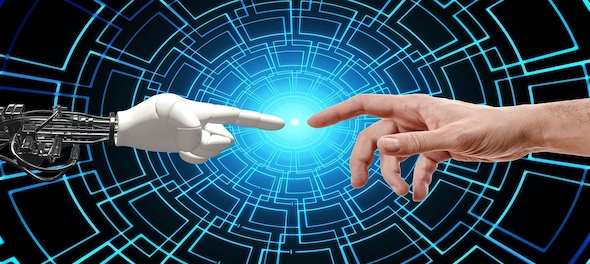
Silicon valley entrepreneur-investor Vinod Khosla asked in 2012: Do we need doctors or algorithms? At the time, he was criticised by doctors and commentators, many of whom did not look past the provocative headline.
It’s true that physicians hardly face any threat from algorithms or artificial intelligence (AI). The seminal research by Carl Benedikt Frey and Michael A. Osborne in 2013, which examined how susceptible jobs are to computerisation, predicts that doctors and surgeons are at 0% risk of losing their jobs to computers.
But in 2018, with the benefit of 6/6 vision that hindsight gives us, it is clear that the question to ask is not whether algorithms will replace doctors. It is really how artificial intelligence will help doctors and at a larger scale change healthcare as we know it.
Complex Tasks Made Simple
The most promising answers, to that end, lie in research labs and field experiments around the world that are finally moving along, thanks to artificial intelligence technologies. For instance, scientists at the Imperial College’s Department of Bioengineering have designed a bionic limb that feels more natural for its users.
The idea is to pick weak electrical signals from the amputee’s stump and pass them on to the bionic arm’s control unit using electrodes embedded in the user’s body.
Here, the key task of interpreting the electric signals for the prosthetic is carried out by a machine learning algorithm. But for machine learning, this would have been an incredibly difficult and complex task to accomplish.
Another field that artificial intelligence is changing rapidly is radiology. A study published in the journal Radiology late last year found a remarkable improvement in early detection of Alzheimer’s disease when researchers used a deep learning algorithm to go through PET scans using data of over 1000 patients from the Alzheimer’s Disease Neuroimaging Initiative database.
On an average, the algorithm which looked for changes in brain metabolism associated with Alzheimer’s, accurately detected the disease more than six years ahead of the final diagnosis.
In translating brain activity into speech, an area where scientists have struggled for many years, artificial intelligence is again making headway. Three research teams have reported progress in turning such data into speech, according to a report in Science magazine.
At Columbia University, scientists studied brain activity associated with speech and are using the data to train neural networks. Using recordings collected from the auditory cortex of five people with epilepsy, the neural net was able to reconstruct spoken numbers that listeners could understand three out of four times.
At the University of Bremen in Germany, scientists mapped activity from the brain's speech planning and motor areas and mapped it to audio recordings and later reconstructed audio from fresh brain data. About 40 percent of these words were intelligible.
In India, which is home to more than a fifth of 285 million visually impaired people in the world, Google has been working with the country's largest eye care provider Aravind Eye Hospital to help screen for diabetic retinopathy. Microsoft is working with LV Prasad Eye Institute and a group of experts from around the world to develop machine learning models for vision impairment and eye diseases.
A Startup Ecosystem
A report published by The Center for Internet and Society categorises AI in healthcare into Descriptive, where AI is used to recognise patterns in images; Predictive, where AI is used to predict an eventuality and help doctors suggest preventive measures; and Prescriptive, where AI detects trends and also suggests treatments.
Such AI-based solutions are being deployed by dozens of startups across the value chain including hospitals, pharmaceuticals, diagnostics and medical devices.
Well funded startup SigTuple, for instance, provides an AI platform called Shonit for blood diagnostics. Bengaluru based Niramai uses machine learning to accurately screen users for breast cancer and the Cureskin app lets users analyse skin issues.
You can question if artificial intelligence is being oversold to you by the media and big tech companies but these are clear markers of progress it has been able to bring in. In fact, one of the foremost medical practitioners, Dr Devi Shetty, is of the view that software will be able to make smarter diagnoses than doctors in the next five years and they will be legally mandated to take a second opinion from software before treating a patient.
The hitch, however, he points out, is that there isn’t always enough data available to train the software.
Jayadevan PK is writer and head of product at FactorDaily.
First Published: Jan 24, 2019 6:01 AM IST
Check out our in-depth Market Coverage, Business News & get real-time Stock Market Updates on CNBC-TV18. Also, Watch our channels CNBC-TV18, CNBC Awaaz and CNBC Bajar Live on-the-go!


Stampede-like situation disrupts Rahul Gandhi, Akhilesh Yadav's joint rally in Uttar Pradesh
May 19, 2024 4:26 PM
Ladakh Lok Sabha election: With Independent candidate's entry, it's now a 3-way contest for BJP and Congress
May 19, 2024 4:01 PM

